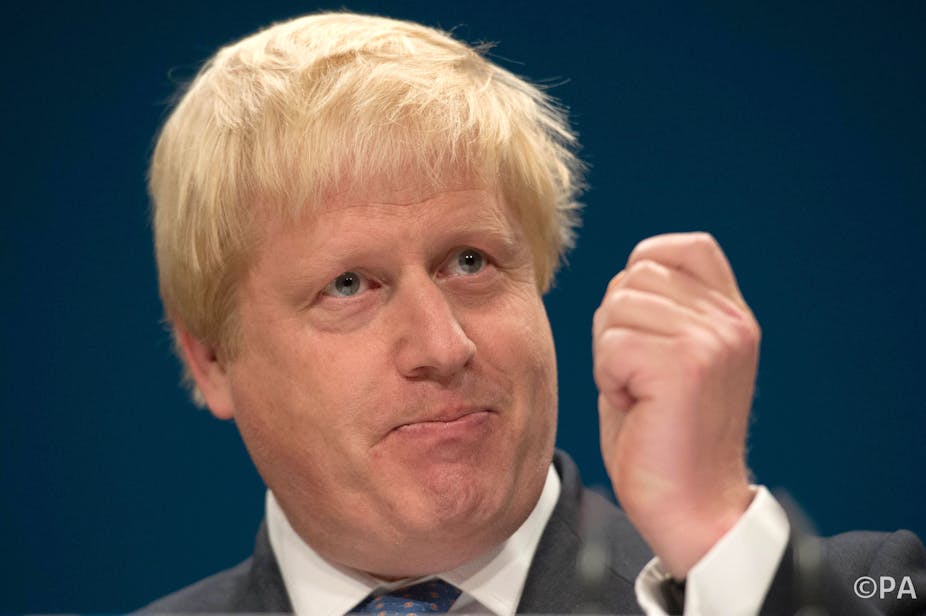The former darling of the Conservative party conference must have been nervous before delivering his 2016 speech. In the past, the unkempt orator and former MP for Henley had fired up the foot-soldiers with humorous attacks on the opposition. Would his old admirers forgive and forget?
Thankfully for Michael Heseltine, his speech to the 2016 conference was warmly received. The audience was obviously in a magnanimous mood, because it was equally receptive to Boris Johnson when he spoke soon after.
Johnson was at a slight advantage, having fewer sins to live down than the euro-enthusiast who challenged Margaret Thatcher for the leadership. Nevertheless, Johnson’s first speech since his ill-fated bid to succeed David Cameron was bound to receive unwelcome scrutiny. His critics pounced gleefully when he referred to Africa as “that country”.
For more objective Johnson-watchers, it was a fascinating first outing for the new foreign secretary. It wasn’t exactly an orthodox display of statesmanship, but there was no disguising the extra ingredient of gravitas. Far from trying to pander to the party right wing, Johnson praised the BBC and reaffirmed his enthusiasm for immigration. He spoke of a “global Britain” that “sticks up” for free markets and democracy. There was a joke at the expense of European Council president Donald Tusk, but it was genuinely funny and almost affectionate.
Recent reports of Johnson’s undiminished ambition are about as surprising as the revelation that leopards still sport spots rather than stripes. However, the post-Brexit Boris might be very different from the previous specimen.
In part, the change has been enforced by the nature of his new job. But Johnson will probably have calculated that his future prospects are best served by pitching his camp in “One Nation” territory. Whatever his secret views on the EU, they are clearly less evangelistic than those of some of his cabinet colleagues. On many domestic issues, he is far to the left of rivals such as international trade secretary Liam Fox. Johnson might not be Theresa May’s favourite person, but he could emerge as an improbable ideological ally — and maybe, in time, a suitable successor.

May’s decision to send Johnson to the Foreign and Commonwealth Office looked like a Machiavellian masterstroke. Here was a glamorous appointment for him, which would buy his silence and increase the dissension within the ranks of senior Brexiteers. This seems to have worked to the extent of stirring up Whitehall turf wars between messrs Fox, Davis and Johnson. Whatever the outcome of this interesting tussle, the prime minister probably felt that Johnson’s capacity for self-destruction would guard her against an imminent challenge from that quarter.
For Johnson’s part, the offer of the Foreign Office was one he could hardly refuse after his abrupt retirement from the leadership contest. As poisoned chalices come, this was quite an attractive one, complete with the most opulent office in London.
It is also a job that depends upon personal credibility – the ability to command the respect of fellow foreign ministers. In this respect, Johnson himself must have realised that he was facing an uphill battle given his previous record of undiplomatic utterances. Whether or not he succeeds, in making the attempt he will have to modify his behaviour in front of his domestic audience. Johnson will have to diversify his repertoire, saving the well-worn and carefully-cultivated “loveable buffoon” persona for the occasional compulsory outings — such as Conservative Party conferences, which will probably continue to hanker after the old act.
Since the Brexit vote, British politics has become disagreeably unpredictable. Before we know it, opponents of the new foreign secretary might even be jeering at “Boring Boris Johnson”.

